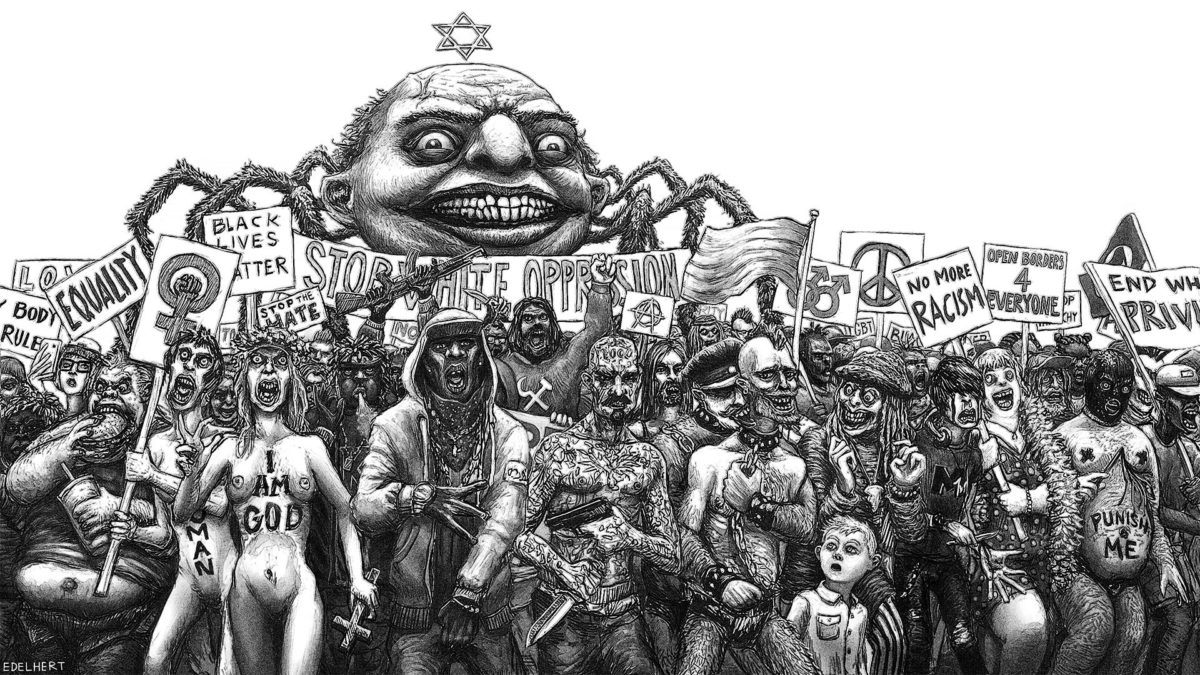This reading carries on from here.
The next chapter in Industrial Society and Its Future is ‘Control of Human Behaviour’. Having established that invasive control of human behaviour was inevitable given a high enough level of technology within a society, Kaczynski now turns to the question of how that behaviour is controlled.
Pressures to control human behaviour have arisen from the beginning of civilisation. When civilisations try to control people so tightly that those people go beyond the limits of their endurance and collapse, then that society will also collapse. Human nature therefore limited the development of human society, but technology threatens to change this by making it possible to change humans.
The passage “Imagine a society that subjects people to conditions that make them terribly unhappy, then gives them drugs to take away their unhappiness. Science fiction?” reads as extremely prescient for 1995. Kaczynski was writing at the start of the Prozac wave, but the trend has worsened severely, with as many as a quarter of some populations on a psychiatric drug at any one point in time. It can be said, therefore, that he predicted the current state of widespread dismay and despair.
Psychiatric drugs are not so much medicines as they are ways of postponing the collapse of society. “In effect, antidepressants are a means of modifying an individual’s internal state in such a way as to enable him to tolerate social conditions that he would otherwise find intolerable.” With a strong sense of irony, Kaczynski notes that the system is often doing the individual a favour when it brainwashes him into submission, because the alternative is destruction. Likewise, the definition of “child abuse” changes depending on which childrearing techniques produce results the system wants, and which do not.
The social disruption we see today is the result of what the system has done to people. This can lead to a totalitarianism that arrives after a number of steps, each one an apparently necessary reaction to a social problem, often with a humanitarian justification. We will probably have to contend with widespread genetic engineering for this reason. The system tends to regard as a “sickness” any mode of behaviour that is inconvenient for it, and therefore that manipulating people to fit in is a “cure”.
In ‘Human Race At A Crossroads’, Kaczynski points out that the system is not in control over everyone. Although it has total control over those who could be termed ‘bourgeois’, there are still many different kinds of disaffected rebel groups. The main concern of the system is to make these people docile so that they can no longer threaten. With this achieved, technology can then expand to take over everything on Earth. Human resistance will be impotent.
A total collapse of the technological system would give humanity the chance to start again. Kaczynski concludes that those who hate the industrial-technological system have two major duties: the first to increase the stresses within the technological system so as to hasten its collapse, the second to develop an alternative ideology that can serve to order a new world when it does.
The last chapter in this section is ‘Human Suffering’. Kaczynski was able to note, even in 1995, that the world’s population has become overblown on account of the technological system, and a collapse of the system would shortly be followed by a collapse in that population. This might entail much suffering in the short term, but this is less than the suffering that would arise if the system was allowed to grow even bigger. In any case, some consider dignity and freedom more important than merely avoiding suffering.
It is far from clear that the collapse of the industrial system would lead to less suffering anyway. Technology has meant that natural controls on population have been removed, which has resulted in a population explosion and all the suffering ensuing from that. Our relationship to Nature has been destroyed, and this is before we account for the effects of future problems like climate change.
Technophiles are unwilling to admit that when a technology comes and makes great changes to a society, this results in many other changes further down the line. For instance, agricultural advances that solve the problem of poverty merely lead to overpopulation, which leads to new problems of stress and aggression. This is an easily predictable problem, and there are many, many others that are not as predictable.
*
If you enjoyed reading this essay, you can get a compilation of the Best VJMP Essays and Articles of 2017 from Amazon for Kindle or Amazon for CreateSpace (for international readers), or TradeMe (for Kiwis).



